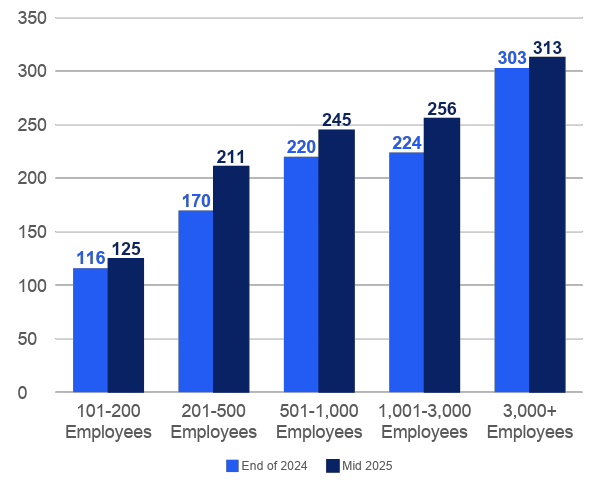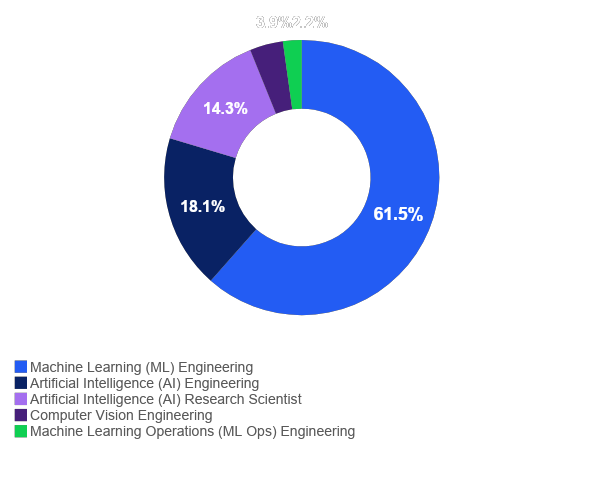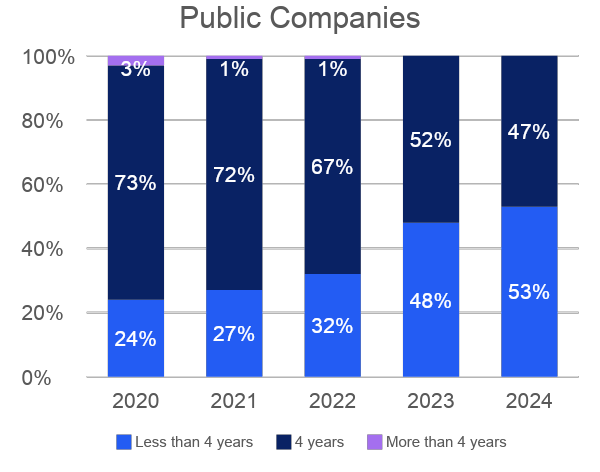Compensation leaders are under more pressure than ever—being asked to work faster, smarter, and more efficiently. With uncertain economic conditions and constant advances in AI, it’s uncharted territory for many.
So, at Total Rewards Live 2025, we shared the top trends affecting compensation today. These insights are from Pave’s dataset, the world’s largest real-time compensation database, sourced from 8,300+ leading companies.
Here’s what you need to know.
1. Compensation Teams Are Being Asked To Do More With Less
Given today's economic instability, most businesses are focused on efficient growth.
Teams are being asked to stretch their dollar further, and, to ensure resources are used efficiently, compensation teams are also increasingly relying on pay for performance rather than a peanut butter approach to rewarding employees.
Salary increases are being disproportionately awarded to top performers over all eligible employees.
- The median salary increase for all eligible employees went down from 3.8% in Q1 2024 to 3.6% in Q1 2025.
- The median salary increase for promoted employees went up from 9.0% in Q1 2024 to 9.7% in Q1 2025.
In addition, HR business partners (HRBPs) are being given more responsibility. Our data shows that the ratio of full-time employees to HR business partners in organizations is on the rise.
For example, in 2024, one HRBP at a mid-sized company (501-1,000 employees) supported 220 employees. In 2025, that number jumped to 245.

{{mid-cta}}
2. AI Is Impacting Entry-Level Roles
It’s a tough time to be starting your career.
To cut costs and increase efficiency, many organizations are automating tasks traditionally performed by more junior employees.
As a result, the percentage of the workforce between 21 and 25 at public companies has dropped drastically, from 15% in 2023 to 6.8% in 2025.

In many organizations, one entry-level role, in particular, is being disrupted by AI—the SDR.
But without the SDR position, it begs the question: how will sellers get their start and climb the sales career ladder?
3. Demand for AI & ML Talent Is on the Rise
With all the buzz about AI, it’s not surprising that companies are looking to hire AI and ML engineers as quickly as possible. As teams build AI into their products and workflows, they need the right employees to help them get ahead.
Over the past two and a half years, employees with AI or ML in their job title doubled—and we anticipate that this trend will continue.
When looking at job families within AI/ML, Pave's data shows that Machine Learning Engineers were the most common group.

4. Compensation Teams Are Getting Creative With Equity Packages
Market changes, including advances in AI and high interest rates, are forcing compensation teams to think outside the box when it comes to equity.
Public companies are embracing shorter vesting periods to get value into employees' hands faster and retain top talent.
In 2024, 53% of public companies offered equity vesting periods that were shorter than the traditional four years.

To deliver competitive equity packages, compensation teams need reliable benchmarks. Pave's Calculated Benchmarks apply machine learning algorithms to our real-time equity grant database to provide you with accurate equity compensation benchmarks.
Stay on Top of Compensation Trends
The market is changing—are you ready?
Make sure you have access to the latest insights on AI and ML roles, equity holdings, new hire vesting schedules, and more with Pave Data Lab.
Pave Data Lab is the AI-powered insights community for compensation leaders.
Pave is a world-class team committed to unlocking a labor market built on trust. Our mission is to build confidence in every compensation decision.







